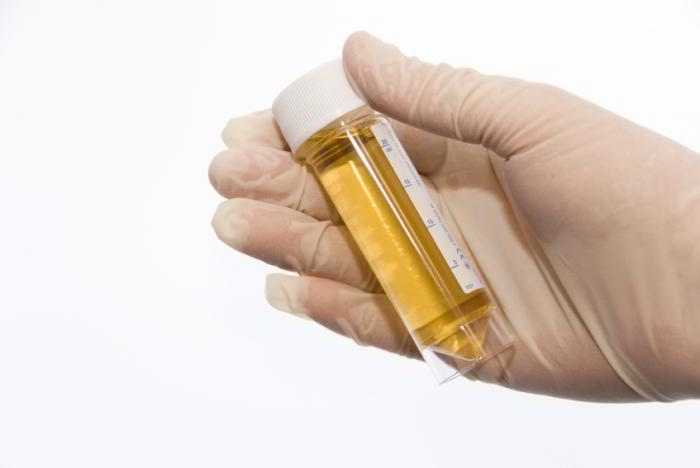The presence of blood in the urine that can be seen with bare eyes is called gross hematuria while blood in urine only visible with the use of a microscope is called microscopic hematuria. Read how to generally prevent blood clots.
Blood clots in urine is an indication of a more delicate condition concerning the organs that are involved in the formation of urine. It is advised that whenever noticed abnormal colors in the urine, a doctor has to be consulted and informed of the situation to prevent the possibility of a more serious complication.
Large blood clots are more dangerous for they are likely to block the flow of urine in the urinary system. The clots can cause discomfort when on its way out of the bladder.
Smoking is highly associated with cancer of the kidney, which in many case leads to the formation of blood clots that may eventually become present in the urine due to the kidney’s connection to the urinal tract. Read about causes of blood in urine.
Moreover, the presence of blood clots in urine has been found to cause psychological distress like anxiety. This can be indicative of another medical concern to look out for.
Blood Clots in Urine
1. Blood Clot in Urine: A common sign of kidney stones.
Individuals with blood clots in urine need to consult their doctors immediately once noticed the abnormality. It may be an indication of urinary tract infection or the presence of kidney stones.
The person needs to drink lots of water and avoid acidic drinks such as coffee, tea, and citrus juices. The type of medical treatment the patient will be needing depends on the signs and symptoms manifested. Read about most common thrombocytopenia causes in adults.
2. Causes of Blood Clots in Urine: Disorders of the urinary system.
Blood clots in urine can be a result of diverse medical disorders. Some possible causes include kidney and urinary tract problems such as kidney stones, urinary tract infection, inflammation of the bladder or the urethra, as well as other bladder diseases. Is it related to spotting between periods?
The cancer of the bladder, kidney, and prostate; as well as injury of the upper and lower urinary tract, are also common causes of blood clots in urine. Individuals who have recently undergone urinary tract procedures, such as catheterization, circumcision, surgery, or kidney biopsy are likely to experience blood clots in urine.
Other causes include polycystic kidney disease, prostate gland enlargement, renal failure, and intake of medications such as antibiotics and analgesics.
3. Blood clots in urine can be due to general blood disorders.
Blood disorders are considerably common causes of blood clots in urine. Medical cases such as hemophilia as well as other clotting disorders (like sickle cell disease), and low or high platelet count, can result to clots in the urine. Read about platelet count and normal platelet count range.
Blood clots in the urine substantially associated with cancer of the bladder, in most cases, the individual is an elderly or a cigarette smoker. The patient may sometimes notice blood clots in urine with no other noticeable symptoms. Even so, the individual needs medical attention.
4. Blood clots in urine can be non-specific.
As pointed out earlier, blood clots in the urine are basically an indication of an underlying medical condition that particularly involves the kidneys and/or blood. This makes it challenging to be sure of the medical relationship associated with the symptom indicative to the presence of the blood clot.
In fact, the symptoms can be caused by unknown or non-specific health problems. The individual should consult a physician to be able to identify problems relevant to the situation and the course of action necessary for treatment.
5. Signs and symptoms of blood clots in urine.
Typical signs and symptoms of blood clot in the urine include unexplained weight loss, burning sensation during urination, fever, nausea, vomiting, shaking chills, and pain in the abdomen (either side or at the back).
In some cases, individuals with blood clots in urine will also display inability to urinate, pain during sex, heavy menstrual bleeding, dribbling urine, excessive night-time urination, and difficulty to start urinating. Besides blood clot in urine, learn of other common blood clot symptoms.
6. Obstruction of urinal tract.
Obstructions that block the free flow of normal blood in the urinal tract can also cause blood clots. This leads to changes in color and thickness of the urine.
When blood stays for a longer period than normal in the urinal tract, with the absence of anti-coagulants, the blood is likely to clot.
7. Diagnosis of blood clots in urine.
A medical expert will order specific tests to determine the cause of the blood clot in the urine. The series of examination procedures may include urinalysis (examines the urine for various cells and chemicals) and intravenous pyelogram (an x-ray of the urinary tract that uses a dye to detect possible tumors, kidney or bladder stones, enlarged prostate, and blockage of urine).
Moreover, cystoscopic examination may be performed which involves the use of a tiny camera in viewing the urethra to detect possible tumors in the urethra. Kidney x-ray may also be used in order to detect kidney abnormalities in patients especially when other tests cannot provide reliable findings.
There are other various tests like urine culture, abdominal ultrasound, and MRI, also helpful in identifying the condition of internal organs. See signs of internal bleeding.
8. Thicker and denser urine may be a sign of blood clots.
Urinal clots are likely to be bright red or dark in color. Any change in intensity and density will require medical examination to ascertain the cause of the problem, especially cases that are persistent over long periods of time.
9. Indication of kidney cancer.
Smoking is known to be closely related to the development of cancer in the kidney. It is also clear that cancer of the kidney, a location where urine is formed, will most likely cause blood clots in the urine; especially due to the absence of anticoagulants that ensures the blood does not clot.
Hence, a cigarette smoker showing any of the mentioned signs and symptoms needs to seek immediate medical attention because the probability when it comes to presence of kidney cancer is high.
10. Therapeutic approach towards blood in urine.
Blood clots in urine can be treated differently depending on the specific cause that resulted to their formation. Mild cases may only call for simple treatment procedures and healthy lifestyle changes. Check out the available blood clot treatment methods.
However, some situations such as the presence of cancer may require serious medical treatment methods that has to be initiated immediately. Common medical treatment methods include the use of antibiotics, surgery, kidney transplant, and platelet transfusion.
Also, read about causes of blood in stool.

Source:
Merck Manual (Urine, Blood in), National Institute of Diabetes and Digestive and Kidney Diseases (Hematuria: Blood in the Urine), Family Doctor (Microscopic Hematuria), Harvard Health Publishing (Hematuria), Kidney Research UK (Blood in the urine), National Health Service (Blood in urine), Urology Care Foundation (What is Hematuria?), American Cancer Society (Signs and Symptoms of Bladder Cancer), Polycystic Kidney Disease Foundation (What are the symptoms?)
Journal Reference:
- Muhammad Masoom Javaid MBBS FRCP, Ching Ching Ong MBBS FRCR, Srinivas Subramanian MBBS DABIM. Blood in Urine: A Hard Nut to Crack. The American Journal of Medicine, Nov 2016; https://www.amjmed.com/article/S0002-9343(16)31121-4/fulltext
- Ramy Sedhom MD. ARE HOSPITALIZED PATIENTS WITH HEMATURIA APPROPRIATELY CARED FOR AFTER HOSPITAL DISCHARGE?. Journal of Hospital Medicine, 2016; https://www.shmabstracts.com/abstract/are-hospitalized-patients-with-hematuria-appropriately-cared-for-after-hospital-discharge/
- Douglas S. Fitzwater, Robert J. Wyatt. Hematuria. American Academy of Pediatrics, 1994; http://pedsinreview.aappublications.org/content/15/3/102
- READ MORE





Thanks for this helpful article regarding reasons for blood clots in the urine. It’s great to have reliable and up-to-date information regarding medical conditions. Keep up the great work!